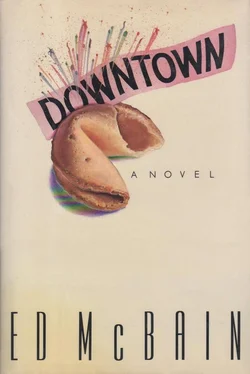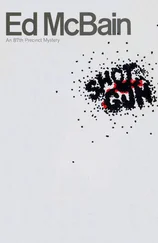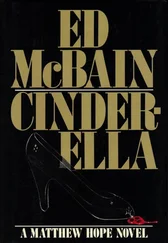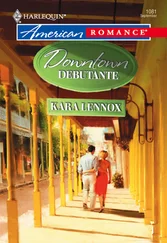Behind him, the fortune-cookie stuffer said, “Dancers have wings but pigs cannot fly.”
Michael opened the door.
He was suddenly in a downtown-Saigon gambling den.
In Saigon, there were only three things to do: get drunk, get laid, or get lucky. There were a great many gambling dens lining the teeming side streets of Saigon, and he had gambled in most of them and had never got lucky in any of them. Nor had he ever seen anyone playing Russian roulette in any of them. That was for the movies. He had told Arthur Crandall — or whatever his real name was — that Platoon was a pretty realistic movie, but the operative word in that observation was “movie.” Because however realistic it might have been, it was still only and merely a movie, and everyone sitting in that theater knew that he was watching flickering images on a beaded screen and that the guns going off and the blood spurting were fake. In the jungle, the guns going off and the blood spurting were real.
You could never show in a movie the feel of a friend’s hot blood spilling onto your hands when he took a hit from a frag grenade. Never. You could never explain in the most realistic of war films that you had shit your pants the first time a mortar shell exploded six feet from where you were lying on your belly in the jungle mud. In war movies, nobody ever shit his pants. You could never explain the terror and revulsion you’d felt the first time you saw a dead soldier lying on his back with his cock cut off and stuffed into his mouth. In war movies, guys compensated for their terror and revulsion by playing Russian roulette in Saigon gambling dens. In real life, what you did in Saigon gambling dens was you bet on the roll of the dice, the turn of the card, or — occasionally — the courage and skill of a rooster. Cockfights in Saigon were as common as severed cocks in the jungle, but you never saw a cockfight in the same building where people were shooting crap or playing poker.
Here and now, in this section of the fortune-cookie factory, there were no cockfights. There were stainless steel ovens, and there were two crap games on blankets against one of the walls, and two poker games at tables, and a mah-jongg game at yet another table. The mah-jongg table was occupied entirely by Chinese men who looked as if they had stepped full blown out of the Ming Dynasty. This was by far the noisiest table in the room, the Chinese men slamming down tiles and shouting what sounded like orders to behead someone, and the men standing around the table shouting either encouragement or disparagement, it was difficult to tell. There was some noise, but not as much, coming from the two crap games on the blankets, where — as had been the case in Saigon — there were Orientals playing with white guys, black guys, and Hispanics. A television set on a shelf high on the wall was turned up to its full volume, and Andy Williams had just come on in a Christmas special that contributed mightily to the overall din. In contrast to the television jubilance, the poker players were virtually solemn. A pall of smoke hung over the entire room. Charlie Wong was nowhere in sight.
Michael looked at his watch. 9:05. He had to get out of here and find a way to get to Kennedy by subway. His plane would be leaving in exactly two hours, the last plane to Boston tonight. He wandered over to one of the crap games, thinking he’d ask one of the players how to get to a subway stop that would connect with the Kennedy train. A short Hispanic — who looked remarkably like the young man who’d asked him not to lean on his car — picked up the dice, blew on them, said, “Mama necesita un par de zapatos nuevos!” and promptly rolled snake eyes. “ Mierda!” he shouted, and immediately walked away from the blanket. On the television screen, Andy Williams was singing “Jingle Bells.”
Michael stepped into the space the little Hispanic had vacated.
Taxi fare would be nice, he thought.
There were five players in the game now: two blacks, two Chinese, and a white man. One of the black men was named Harry. Michael discerned this when the dice were handed to him and one of the Chinese men said, “Come on, Hally, ketchum up hot,” sounding like the cook in an old movie about the Gold Rush. At the mah-jongg table, one of the Chinese men there shouted something that sounded fierce and warlike, but everyone at the table laughed. Here at the blanket, Harry laughed, too. Michael figured he was laughing not because he spoke or understood Chinese but because it was now his turn to roll the dice, and a man holding a pair of dice in his hand is — for the moment, at least — in control of his own destiny.
Harry did indeed look like a man with the world on a string. Tall and wiry and chocolate-colored, he possessed in addition to his good looks a dirty Eddie Murphy laugh, a mischievous Bill Cosby twinkle, and the calm, confident air of a man about to make a fortune. Michael would have bet all the oranges on every tree in his groves on the roll of the dice this man held in his hand. But he had only the ten dollars Charlie Bonano had loaned him.
“Bet a hundred,” Harry said, and put five twenty-dollar bills on the blanket. The hundred was covered in thirty seconds flat; apparently most of these players had seen Harry roll before and the air of confidence he exuded impressed them not a bit. The only man at the blanket who seemed to have any faith in him at all was the Chinese man who’d earlier urged him to ketchem up hot. He now said, “Twenny say Hally light.”
“Ten says he’s wrong,” the other black man at the blanket said.
“Me, too, hassa ten long,” the other Chinese man said, sounding like a stoker on an American gunboat during the Boxer Rebellion.
“Ten more says he’s right,” Michael said, and tossed onto the blanket all the money he had in the world.
The white guy — a burly man wearing a blue sweater and a blue watch cap, and looking like a seaman off a cargo ship — said, “Ten says he’s wrong,” and tossed his money onto the blanket.
On the television screen, Andy Williams and what appeared to be the entire Mormon Tabernacle Choir began bellowing “God Rest Ye Merry, Gentlemen.”
“Come on, sugah,” Harry whispered, and shook the dice gently, and let them roll easily off the pink palm of his hand and onto the blanket. The dice rolled and rolled and rolled, and hit the wall, and bounced off the wall, and one of them flew to the right and came up with a six-spot, and the other one flew to the left and came up with a five-spot, for a total of eleven, which was a winner.
Michael now had twenty dollars.
Was twenty enough for a taxi to Kennedy?
He looked at his watch.
9:15.
His heart almost stopped.
The girl walking toward the blanket was tall.
Five-nine, he supposed.
Much taller than the girls who’d worked the Saigon bars.
But every bit as beautiful. So achingly beautiful, those Vietnamese girls. Girls, yes, some of them were barely in their teens. That long glossy black hair and the slanted loam-colored eyes, the complexion as pale as a dipper of cream, a faint tint to it, not yellow, you could not call any Oriental on earth yellow, any more than you could call anyone black, or red for that matter, or even white, it was pointless to try to identify people by color because the colors simply didn’t match. Here and now she came gliding sleekly out of the din and the smoke, a sinuous glide unique to Orientals, a green silk dress slit high on her right thigh, a red rose in her black hair, green satin high heeled pumps, the colors of Christmas, fa-la-la-la-la, Andy Williams sang, and Michael wondered how many Saigon hookers he had fallen in love with. And later killed their sisters in the jungle.
“Hello, Harry,” she said, “are you winning?”
Читать дальше












